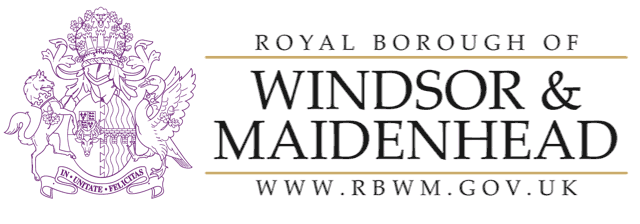Next week, Cabinet will consider increases to a range of fees and charges for services from 1st January 2024, in response to the serious financial position faced by the council.
Amongst changes to a range of chargeable services, Cabinet will also be asked to approve commencing public consultation on changes to parking fees and charges. These changes would come into effect from February, once feedback from the consultation has been considered.
The changes include proposals to freeze parking charges in the two main town centre multi-storey car parks operated by the council (Hines Meadow in Maidenhead and Victoria Street in Windsor) for the first three hours. This supplements the existing one hour free residents’ parking offer at these car parks and selected council-operated car parks across the borough. The one hour free for residents will remain in place to encourage residents to enjoy leisure activities and shopping within their local town centre and support a thriving local economy.
In relation to on-street parking in residential areas where there is controlled parking, the council is proposing alternative options for permit charges in order to gauge public views before taking a final decision.
The Royal Borough continues to have the lowest council tax in the country, outside of London. Council tax was not increased in the past, and the low rate of council tax means that the council is unable to raise funds to the same level as most other councils. Therefore, the council needs to generate income through other sources, including through increased fees and charges.
Council debt is standing at £203m, which is high relative to the size of the council’s budget. High interest rates have increased the costs of servicing this debt, with interest payments forecast to reach £8m this year and rising further next year. Higher than budgeted for inflation is driving higher costs across all areas of council spend. Increases in costs and demand - within statutory services such as adult social care, children’s services and housing in particular - have put considerable pressure on the 2023-24 budget that was agreed in February.
In September, councillors approved an action plan for fixing the council’s finances, which included maximising income from fees and charges. Doing so will improve the council’s overall financial position and help to close the budget gap for the current financial year, by generating over £400,000 of estimated additional income to fund local services. The increased income from fees and charges for the full 2024/25 financial year is estimated to be £2.27m.
The proposed changes reflect rates of inflation and the associated costs of providing services. Some fees are charged on a cost-recovery basis. Other fees are discretionary, meaning that the council decides on the appropriate level.
Benchmarking has been undertaken to ensure that the proposed fees and charges are not out of step with comparable local authorities and private sector providers, where relevant. Equality and socio-economic impacts have been considered and concessions put in place to reduce adverse impacts.
Some fees and charges are not included for early increases. These include fees which have already been set for an academic year, or sporting season, or where further review or engagement is needed. The full list of fees and charges is shared in the related Cabinet report.
Cllr Jones, Cabinet Member for Finance and Deputy Leader of the Council, says: "The council’s financial position is challenging. Historical decisions taken in relation to the council's budget - including those around debt levels and council tax - are continuing to impact negatively and we need to look at all avenues so that we can continue to fund vital local services.
"The amount of money collected through council tax, business rates and government grant simply isn’t enough to meet the demand for services we face, particularly social care and supporting the most vulnerable, all of which continue to increase in cost above the level set at the last budget. At the same time, higher interest rates have massively increased borrowing costs and the impacts of inflation are greater than was budgeted for.
"The Cabinet is committed to fixing the problem, which requires tough decisions. The alternative – as we’ve seen in other councils which have fallen into Government intervention – is always worse.
"Where we can, we will try to mitigate the impact of fee increases – including by freezing parking charges at the main town centre shopping car parks, and providing support to those who are least able to pay their Council Tax bills. We also have a comprehensive programme in place to support residents struggling with the cost of living crisis.
"We know that increasing fees and charges is never going to be popular, but the Cabinet is taking the steps necessary to fix the council’s finances. These proposals make an important contribution to closing the budget gap for this year, and for 2024-25."
